Six novels about children thrust into an adult world
The footage we’ve been seeing the last few days of the children in Afghanistan is breaking my mother-heart, and like so many of us here in the West, I am aching to do more for them than merely pray for their safety and rescue. I am a firm believer in prayer, but I also believe we are often able to participate in the answer to those prayers if we look for the avenues after we rise from our knees. More about that at the end of this post.
Those kids in Afghanistan, all of them born during this last stretch of freedom years when, among other things, all of them could attend school, are now living in an inverted world from the one they’ve always known. They’ve been thrust into a situation that is not of their making, one imposed on them and too many of them will have to find a way to be as brave and wise and resilient as people much older.
I am always moved and crushed and inspired by stories, real and imagined, about children who should be able to be what they are – children – but instead are compelled to navigate the complex and often scary world of adults. I was reminded today of the many novels I have read where this theme runs through the pages. I offer them here as a list for your own reading and would love to hear which books you would add to it.
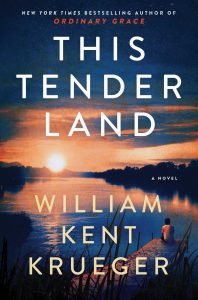 THIS TENDER LAND by William Kent Krueger is one of my favorite reads from the year 2020. Krueger’s style is impeccable and his novels never fail to impress. He is a true wordsmith and painter of stories. This novel is about four orphan vagabonds who “journey into the unknown, crossing paths with others who are adrift, from struggling farmers and traveling faith healers to displaced families and lost souls of all kinds.” It’s been described as enthralling, bighearted epic “that shows how the magnificent American landscape connects us all, haunts our dreams, and makes us whole.” Highly recommend. And if you love this one, you will gobble up ORDINARY GRACE, an earlier title of his.
THIS TENDER LAND by William Kent Krueger is one of my favorite reads from the year 2020. Krueger’s style is impeccable and his novels never fail to impress. He is a true wordsmith and painter of stories. This novel is about four orphan vagabonds who “journey into the unknown, crossing paths with others who are adrift, from struggling farmers and traveling faith healers to displaced families and lost souls of all kinds.” It’s been described as enthralling, bighearted epic “that shows how the magnificent American landscape connects us all, haunts our dreams, and makes us whole.” Highly recommend. And if you love this one, you will gobble up ORDINARY GRACE, an earlier title of his.
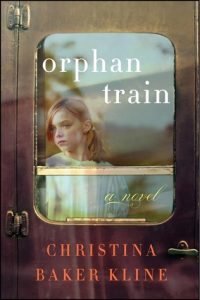 ORPHAN TRAIN was my first Christina Baker Kline novel and even all these years later, I still can remember how this story broke me and yet made me stronger. Here is a dual time line story of two women: one, a teenager about to age out of the foster care system, and the other, an elderly woman who’d been orphaned as a child and was put on a train to the Midwest with “hundreds of other children whose destinies would be determined by luck and chance.” It is not easy to read what happens to the young girl who will become the old woman who will change this troubled teen’s life but easy books usually don’t stay with me. I am typically not inspired or changed by them. Books that work their way into my soul leave their mark. This one did that.
ORPHAN TRAIN was my first Christina Baker Kline novel and even all these years later, I still can remember how this story broke me and yet made me stronger. Here is a dual time line story of two women: one, a teenager about to age out of the foster care system, and the other, an elderly woman who’d been orphaned as a child and was put on a train to the Midwest with “hundreds of other children whose destinies would be determined by luck and chance.” It is not easy to read what happens to the young girl who will become the old woman who will change this troubled teen’s life but easy books usually don’t stay with me. I am typically not inspired or changed by them. Books that work their way into my soul leave their mark. This one did that.
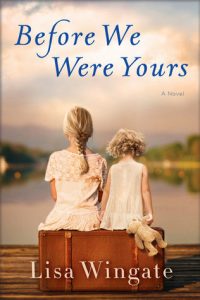 BEFORE WE WERE YOURS by Lisa Wingate is one of those books that made me want to reach back into the past and pull the children – real ones – caught up in the actual scheme that forms the premise of this novel out of that hell and into the present where I could protect them. Would I know exactly how to do that? Well, maybe not, but I wouldn’t rest until I’d exhausted every effort. This is a dual timeline tale, but it’s the part in the past that had my mother-heart writhing. From the publisher: “Wrenched from all that is familiar and thrown into a Tennessee Children’s Home Society orphanage, the Foss children are assured that they will soon be returned to their parents—but they quickly realize the dark truth. At the mercy of the facility’s cruel director, Rill fights to keep her sisters and brother together in a world of danger and uncertainty.” Lisa is a master at the craft of storytelling. Her prose is evocative and rich, even when it’s breaking your heart.
BEFORE WE WERE YOURS by Lisa Wingate is one of those books that made me want to reach back into the past and pull the children – real ones – caught up in the actual scheme that forms the premise of this novel out of that hell and into the present where I could protect them. Would I know exactly how to do that? Well, maybe not, but I wouldn’t rest until I’d exhausted every effort. This is a dual timeline tale, but it’s the part in the past that had my mother-heart writhing. From the publisher: “Wrenched from all that is familiar and thrown into a Tennessee Children’s Home Society orphanage, the Foss children are assured that they will soon be returned to their parents—but they quickly realize the dark truth. At the mercy of the facility’s cruel director, Rill fights to keep her sisters and brother together in a world of danger and uncertainty.” Lisa is a master at the craft of storytelling. Her prose is evocative and rich, even when it’s breaking your heart.
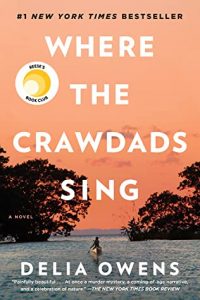 WHERE THE CRAWDADS SING by Delia Owens After having been on the NY Times bestseller list for two years there probably isn’t a soul reading this blog post who hasn’t read this book, so I probably don’t have to say too much about it! I will say I was moved by this novel and its young protagonist’s journey. The publisher describes the book this way: “Owens juxtaposes an exquisite ode to the natural world against a profound coming of age story and haunting mystery. Thought-provoking, wise, and deeply moving, Owens’s debut novel reminds us that we are forever shaped by the child within us, while also subject to the beautiful and violent secrets that nature keeps.” Looking forward to the screen adaptation of this one!
WHERE THE CRAWDADS SING by Delia Owens After having been on the NY Times bestseller list for two years there probably isn’t a soul reading this blog post who hasn’t read this book, so I probably don’t have to say too much about it! I will say I was moved by this novel and its young protagonist’s journey. The publisher describes the book this way: “Owens juxtaposes an exquisite ode to the natural world against a profound coming of age story and haunting mystery. Thought-provoking, wise, and deeply moving, Owens’s debut novel reminds us that we are forever shaped by the child within us, while also subject to the beautiful and violent secrets that nature keeps.” Looking forward to the screen adaptation of this one!
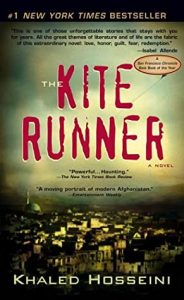 THE KITE RUNNER by Khaled Hosseini was the first of his that I read and I became an immediate devotee of his writing style. And in these days of ours I am thinking I might re-read it, and his stellar A THOUSAND SPLENDID SUNS – both are set in Afghanistan. From the publisher: “The unforgettable, heartbreaking story of the unlikely friendship between a wealthy boy and the son of his father’s servant, The Kite Runner is a beautifully crafted novel set in a country that is in the process of being destroyed. It is about the power of reading, the price of betrayal, and the possibility of redemption; and an exploration of the power of fathers over sons—their love, their sacrifices, their lies. A sweeping story of family, love, and friendship told against the devastating backdrop of the history of Afghanistan over the last thirty years.” Again, not an easy read. For some readers, there may be triggers within the pages. But so impactful and memorable.
THE KITE RUNNER by Khaled Hosseini was the first of his that I read and I became an immediate devotee of his writing style. And in these days of ours I am thinking I might re-read it, and his stellar A THOUSAND SPLENDID SUNS – both are set in Afghanistan. From the publisher: “The unforgettable, heartbreaking story of the unlikely friendship between a wealthy boy and the son of his father’s servant, The Kite Runner is a beautifully crafted novel set in a country that is in the process of being destroyed. It is about the power of reading, the price of betrayal, and the possibility of redemption; and an exploration of the power of fathers over sons—their love, their sacrifices, their lies. A sweeping story of family, love, and friendship told against the devastating backdrop of the history of Afghanistan over the last thirty years.” Again, not an easy read. For some readers, there may be triggers within the pages. But so impactful and memorable.
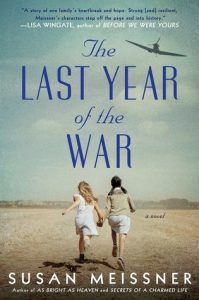 THE LAST YEAR OF THE WAR I end this list of six titles with one of my own. I had no idea until 2015 that during WW2, hundreds of interned German-American immigrants and their American-born children were repatriated to Germany in secret prisoner exchanges during the height of the Allied invasion. Reading about what it was like for these children to be thrust into the maelstrom of war was chilling. I imagined a story about a young teenage girl experiencing what dozens upon dozens of actual American children actually did experience. The Last Year of the War is the story of an Iowa-born teenager, imprisoned with her family at a Texas internment camp, and then sent to her German immigrant parents’ home country – a place she’s never been where a language she has never spoken is spoken and where Americans are the enemy – and at a time when Germany is being bombed every night by Allied forces. It’s a story about identity, loyalty, friendship, and resilience. And based on actual events.
THE LAST YEAR OF THE WAR I end this list of six titles with one of my own. I had no idea until 2015 that during WW2, hundreds of interned German-American immigrants and their American-born children were repatriated to Germany in secret prisoner exchanges during the height of the Allied invasion. Reading about what it was like for these children to be thrust into the maelstrom of war was chilling. I imagined a story about a young teenage girl experiencing what dozens upon dozens of actual American children actually did experience. The Last Year of the War is the story of an Iowa-born teenager, imprisoned with her family at a Texas internment camp, and then sent to her German immigrant parents’ home country – a place she’s never been where a language she has never spoken is spoken and where Americans are the enemy – and at a time when Germany is being bombed every night by Allied forces. It’s a story about identity, loyalty, friendship, and resilience. And based on actual events.
I could add so many more to the list including ALL THE LIGHT WE CANNOT SEE by Anthony Doerr, and THE LANGUAGE OF FLOWERS by Vanessa Diffenbaugh, as well as nonfiction works like THE DIARY OF A YOUNG GIRL by Anne Frank and THE GLASS CASTLE by Jeanette Walls. But all lists must come to an end! Plus I would love to hear what books about children thrust into situations that many adults would struggle to handle have impacted you the most.
And if you are wondering like I am about what more I can do for the young ones in Afghanistan, a fellow author, Nadia Hashimi, has curated a list of aid organizations already in place to and support the Afghan refugee crisis. The Google doc is accessible via a link on her Instagram profile: https://www.instagram.com/nadiahashimibooks/. If you are not on Instagram, one of the places on her list is Doctors Without Borders. Here is the direct link to what they are doing in Afghanistan. https://www.doctorswithoutborders.org/what-we-do/countries/afghanistan

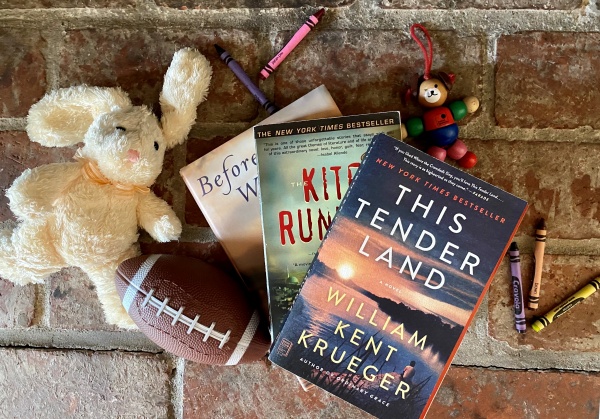
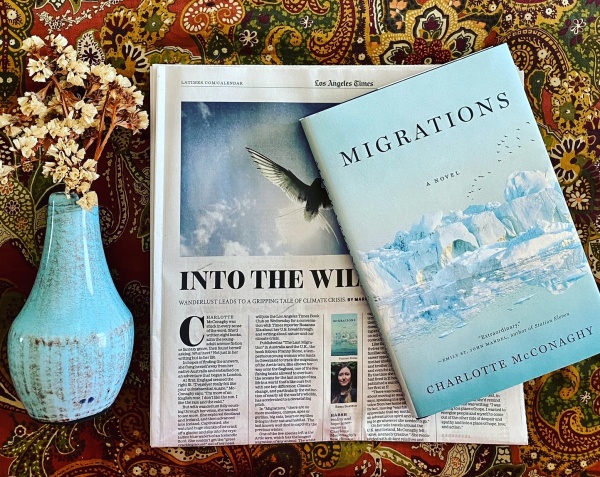
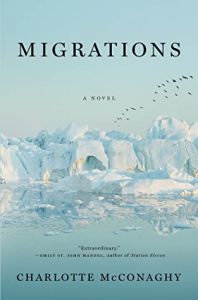
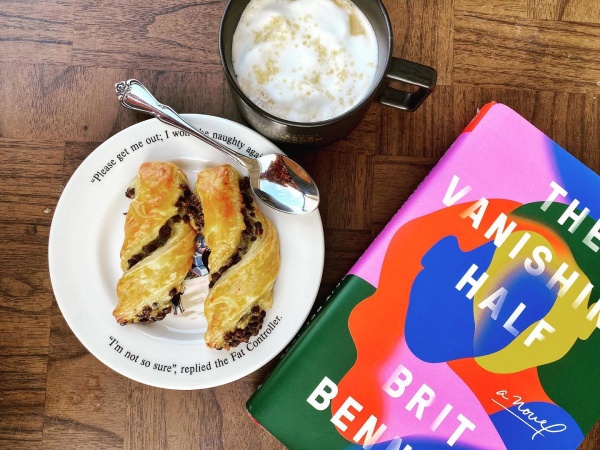
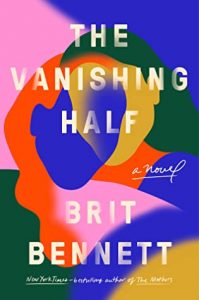 Often when I begin to read the book that everyone is talking about I find myself dealing with expectations that are just too high. The annoying result of having expectations that are too lofty is failing to enjoy the book as much as I probably would have if I had heard nothing about it. It’s happened more than once, sadly. Maybe this has happened to you, too?
Often when I begin to read the book that everyone is talking about I find myself dealing with expectations that are just too high. The annoying result of having expectations that are too lofty is failing to enjoy the book as much as I probably would have if I had heard nothing about it. It’s happened more than once, sadly. Maybe this has happened to you, too?
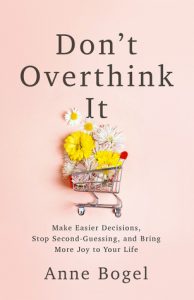 Hello, reading friends. I hope you are able to find a place of tranquility on this Friday afternoon but if you’re feeling stretched in too many directions while at the same time feeling isolated and kerfuffled, I have an interview here for you – and a book – that might help. My dear friend Anne Bogel, who you might also know as the amazing
Hello, reading friends. I hope you are able to find a place of tranquility on this Friday afternoon but if you’re feeling stretched in too many directions while at the same time feeling isolated and kerfuffled, I have an interview here for you – and a book – that might help. My dear friend Anne Bogel, who you might also know as the amazing 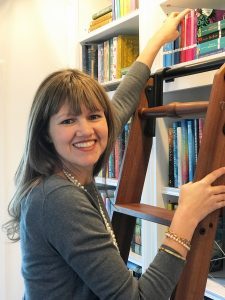 ANNE: I certainly didn’t! The new book is about making easier decisions, stopping second-guessing, and bringing more joy to your life. Studies show nearly all of us engage in overthinking—that means repetitive, unhealthy, unhelpful thoughts. Overthinking is exhausting, and it makes us miserable. But with new strategies and some practice, we can learn to stop thinking our way out of happiness and think our way into it instead.
ANNE: I certainly didn’t! The new book is about making easier decisions, stopping second-guessing, and bringing more joy to your life. Studies show nearly all of us engage in overthinking—that means repetitive, unhealthy, unhelpful thoughts. Overthinking is exhausting, and it makes us miserable. But with new strategies and some practice, we can learn to stop thinking our way out of happiness and think our way into it instead.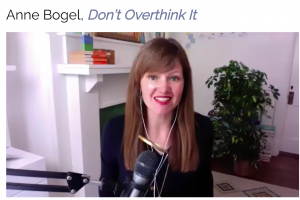 Susan here again. Such good words. Anne spoke more about this book and answered questions from a packed Zoom room where a virtual book stop took place.
Susan here again. Such good words. Anne spoke more about this book and answered questions from a packed Zoom room where a virtual book stop took place. 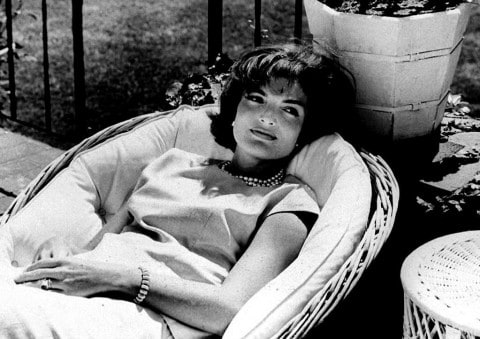
 I am so pleased to take a break from all things virus and chat with my fellow Berkley author, Stephanie Marie Thornton, about her brand new book, AND THEY CALLED IT CAMELOT, a story about the enigmatic Jackie Kennedy Onassis. Read to the end to see how to get in on a signed copy! Grab a cuppa and get cozy!
I am so pleased to take a break from all things virus and chat with my fellow Berkley author, Stephanie Marie Thornton, about her brand new book, AND THEY CALLED IT CAMELOT, a story about the enigmatic Jackie Kennedy Onassis. Read to the end to see how to get in on a signed copy! Grab a cuppa and get cozy!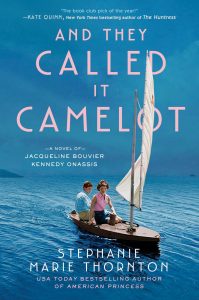
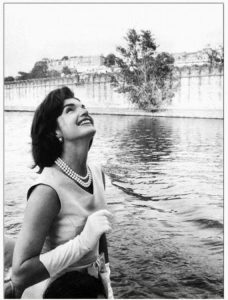 We’ve all seen images of Jackie in Dallas in the back of the Lincoln Continental limousine and then wearing her blood-spattered pink suit standing next to Lyndon Johnson while he took the oath of office on the day that JFK was assassinated—it’s impossible to truly imagine how horrific that day was for Jackie. However, one thing I didn’t realize until I started researching is that Jackie—and not Bobby’s wife Ethel or even his mother, Rose Kennedy—was the family member who signed the consent forms to terminate Bobby’s life support after he was shot at the Ambassador Hotel during his primary campaign. It seemed to me further proof of Jackie’s deep well of strength—that this woman who had survived so much—was able to muster the courage to face so many tragedies.
We’ve all seen images of Jackie in Dallas in the back of the Lincoln Continental limousine and then wearing her blood-spattered pink suit standing next to Lyndon Johnson while he took the oath of office on the day that JFK was assassinated—it’s impossible to truly imagine how horrific that day was for Jackie. However, one thing I didn’t realize until I started researching is that Jackie—and not Bobby’s wife Ethel or even his mother, Rose Kennedy—was the family member who signed the consent forms to terminate Bobby’s life support after he was shot at the Ambassador Hotel during his primary campaign. It seemed to me further proof of Jackie’s deep well of strength—that this woman who had survived so much—was able to muster the courage to face so many tragedies.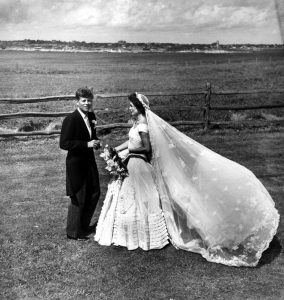 My greatest hope is that readers take away a deep admiration for the woman that was Jacqueline Bouvier Kennedy Onassis. So many of Jackie’s great personal accomplishments—including her renovation of the White House and preservation of Grand Central Station in New York—have been forgotten, but this was a First Lady who left a beautiful mark on our country and who was revered around the world. Jackie’s grace, poise, and strength made her into a true American legend, and I hope readers close the book with a sense of awe over the life she lived.
My greatest hope is that readers take away a deep admiration for the woman that was Jacqueline Bouvier Kennedy Onassis. So many of Jackie’s great personal accomplishments—including her renovation of the White House and preservation of Grand Central Station in New York—have been forgotten, but this was a First Lady who left a beautiful mark on our country and who was revered around the world. Jackie’s grace, poise, and strength made her into a true American legend, and I hope readers close the book with a sense of awe over the life she lived.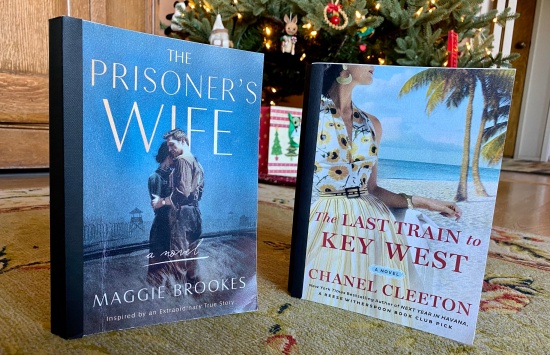
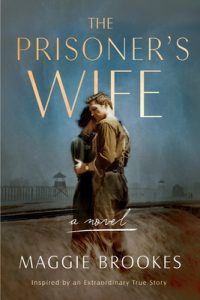
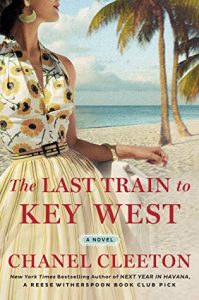 Secondly, I was so glad to be invited to read my good friend Chanel Cleeton’s upcoming
Secondly, I was so glad to be invited to read my good friend Chanel Cleeton’s upcoming 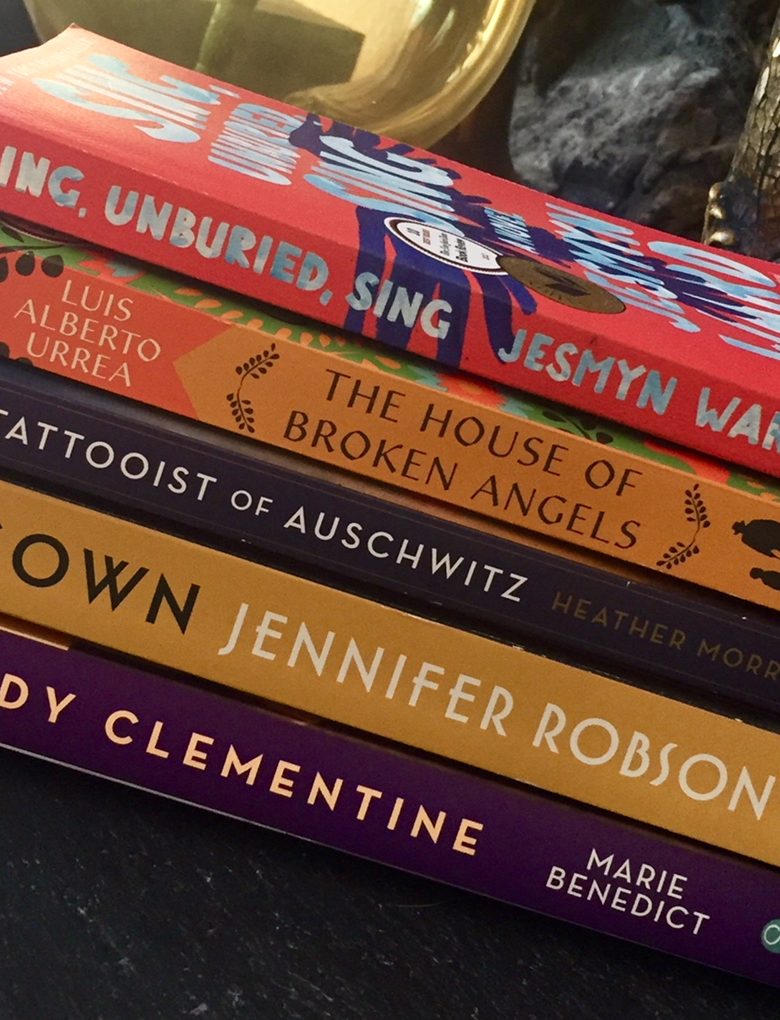
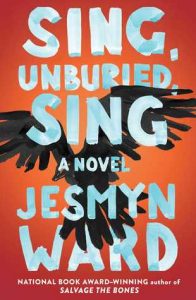 I bought
I bought 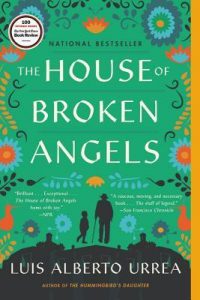 I picked up
I picked up 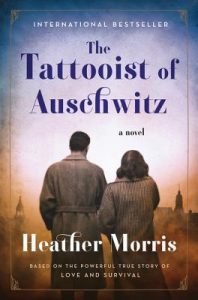 The Tattooist of Auschwitz
The Tattooist of Auschwitz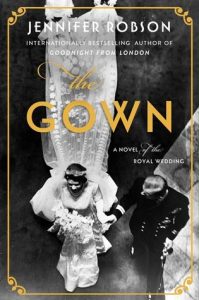 The Gown
The Gown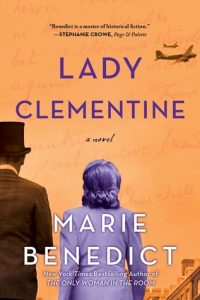 Lastly I read
Lastly I read 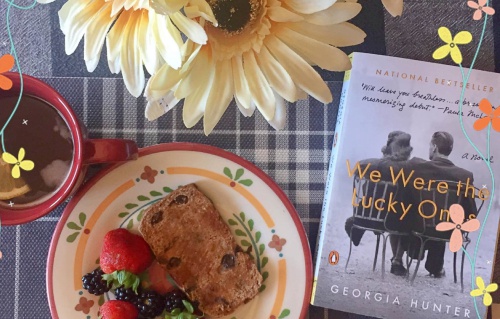
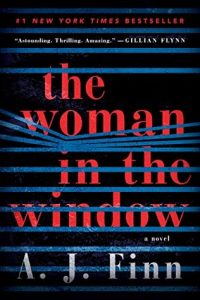 What I read last week:
What I read last week: 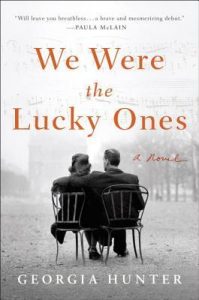 What I am reading now:
What I am reading now: 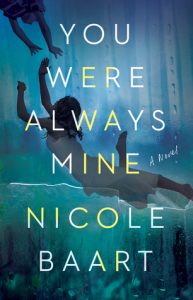 So if you’re on Twitter, hop on today to the
So if you’re on Twitter, hop on today to the 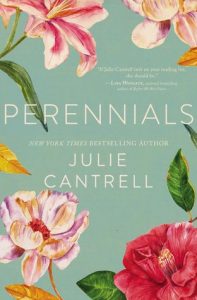

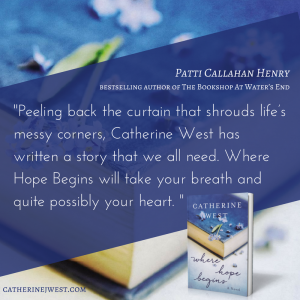 Today I’m happy to have as my guest, fellow novelist
Today I’m happy to have as my guest, fellow novelist  CATHERINE: Savannah Barrington has always found solace at her parents’ lake house in the Berkshires, and it’s the place that she runs to when her husband of over twenty years leaves her. Though her world is shaken, and the future uncertain, she finds hope through an old woman’s wisdom, a little girl’s laughter, and a man who’s willing to risk his own heart to prove to Savannah that she is worthy of love. But soon, Savannah is given a challenge that she can’t run away from. Forgiving the unforgivable. Amidst the ancient gardens and musty bookstores of the small town she’s sought refuge in, she must reconcile with the grief that haunts her, the God pursuing her, and the wounds of the past that might be healed after all.
CATHERINE: Savannah Barrington has always found solace at her parents’ lake house in the Berkshires, and it’s the place that she runs to when her husband of over twenty years leaves her. Though her world is shaken, and the future uncertain, she finds hope through an old woman’s wisdom, a little girl’s laughter, and a man who’s willing to risk his own heart to prove to Savannah that she is worthy of love. But soon, Savannah is given a challenge that she can’t run away from. Forgiving the unforgivable. Amidst the ancient gardens and musty bookstores of the small town she’s sought refuge in, she must reconcile with the grief that haunts her, the God pursuing her, and the wounds of the past that might be healed after all.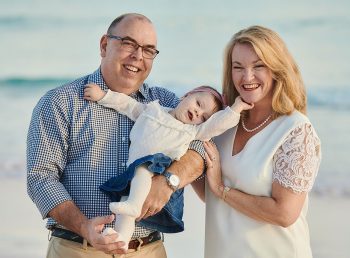 CATHERINE: While I have written romance in the past, I’m really most comfortable with family drama. Families can be so complicated. It’s really amazing to me that you can have all these people related by blood, yet all so very different. But the familial bond often, not always, overrides those differences. I love writing what I call “reality fiction.” Digging deep into those tough topics that we often want to ignore or brush aside because sometimes it’s too difficult. But life is hard. All of us are faced with struggles and situations that seem insurmountable. I think it’s really important to acknowledge that, and to realize that even in our darkest hours, we are never really alone. We are loved and cared for by an amazing God who will never abandon us. That’s really the crux of each story I write. While the faith message may be subtle, I don’t believe it’s one that can be ignored. Without hope, we have nothing. And that’s what I like my characters to eventually come around to. Most of them do.
CATHERINE: While I have written romance in the past, I’m really most comfortable with family drama. Families can be so complicated. It’s really amazing to me that you can have all these people related by blood, yet all so very different. But the familial bond often, not always, overrides those differences. I love writing what I call “reality fiction.” Digging deep into those tough topics that we often want to ignore or brush aside because sometimes it’s too difficult. But life is hard. All of us are faced with struggles and situations that seem insurmountable. I think it’s really important to acknowledge that, and to realize that even in our darkest hours, we are never really alone. We are loved and cared for by an amazing God who will never abandon us. That’s really the crux of each story I write. While the faith message may be subtle, I don’t believe it’s one that can be ignored. Without hope, we have nothing. And that’s what I like my characters to eventually come around to. Most of them do.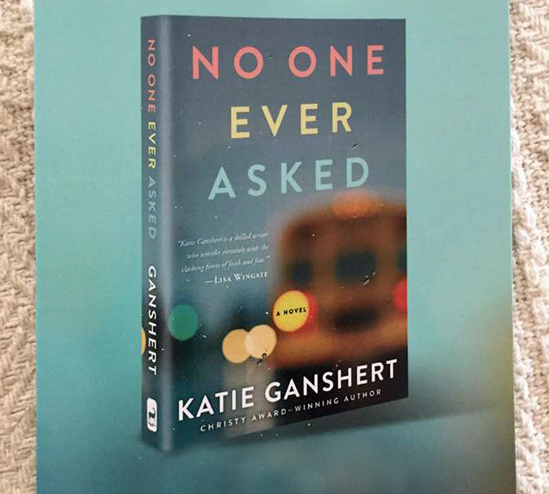
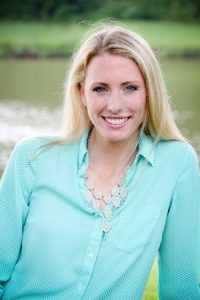 Dear friends, I am so happy to have fellow author
Dear friends, I am so happy to have fellow author 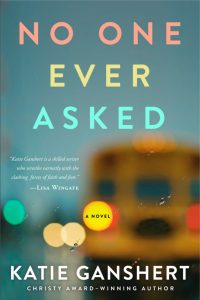 KG: Oh, man. There’s a myriad of answers to that question! I think in the context of this book, I would have two answers: to be human means to be made in the image of God. Which means that all of us–no matter our beliefs, our lifestyle choices, our political affiliations–have intrinsic value, and deserved to be treated as such. I would also say that to be human means to be complex, and that complexity is irrevocably shaped by our unique experiences.
KG: Oh, man. There’s a myriad of answers to that question! I think in the context of this book, I would have two answers: to be human means to be made in the image of God. Which means that all of us–no matter our beliefs, our lifestyle choices, our political affiliations–have intrinsic value, and deserved to be treated as such. I would also say that to be human means to be complex, and that complexity is irrevocably shaped by our unique experiences.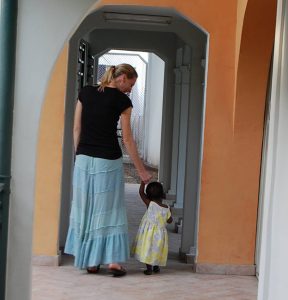 KG: a lot of similarities, and a lot of differences as well. We adopted our daughter when she was a couple months shy of three, which isn’t the same as adopting a seven-year old. Our daughter also has some very unique special needs, which make our stories quite different. A lot of the struggles Jen has with Jubilee (her daughter) aren’t the same struggles I’ve had with my daughter. What absolutely is similar, is the fact that we both struggled. I think this is true for many parents who adopt internationally—especially when that adoption takes a painfully long time. For so long, you are fervently praying for and dreaming about this child you don’t actually know. And then one day, this child you loved so desperately from afar is up close and personal, under your roof, and you are essentially strangers. Not only that, they are grieving the loss of so much, with very real trauma in their past, and that trauma doesn’t manifest itself in pleasant, lovely ways. There’s often this sense of guilt, too, because God just answered one of your most desperate prayers, so you should be filled with gratitude, right? And your story is so inspiring to the people on the outside looking in. But for most families, attachment takes time. It’s something you have to fight for. The days, weeks, months afterward can be very isolating. This is the piece of Jen’s story that is similar to my own. As well as the struggles that come with being a white mother to a black daughter—such as the learning curve that comes with hair care, or the desperation one feels to give their child mirrors (people in their life who look like them). Representation is so important. As a trans-racial family, you become quickly aware of how segregated we still are as a society.
KG: a lot of similarities, and a lot of differences as well. We adopted our daughter when she was a couple months shy of three, which isn’t the same as adopting a seven-year old. Our daughter also has some very unique special needs, which make our stories quite different. A lot of the struggles Jen has with Jubilee (her daughter) aren’t the same struggles I’ve had with my daughter. What absolutely is similar, is the fact that we both struggled. I think this is true for many parents who adopt internationally—especially when that adoption takes a painfully long time. For so long, you are fervently praying for and dreaming about this child you don’t actually know. And then one day, this child you loved so desperately from afar is up close and personal, under your roof, and you are essentially strangers. Not only that, they are grieving the loss of so much, with very real trauma in their past, and that trauma doesn’t manifest itself in pleasant, lovely ways. There’s often this sense of guilt, too, because God just answered one of your most desperate prayers, so you should be filled with gratitude, right? And your story is so inspiring to the people on the outside looking in. But for most families, attachment takes time. It’s something you have to fight for. The days, weeks, months afterward can be very isolating. This is the piece of Jen’s story that is similar to my own. As well as the struggles that come with being a white mother to a black daughter—such as the learning curve that comes with hair care, or the desperation one feels to give their child mirrors (people in their life who look like them). Representation is so important. As a trans-racial family, you become quickly aware of how segregated we still are as a society.